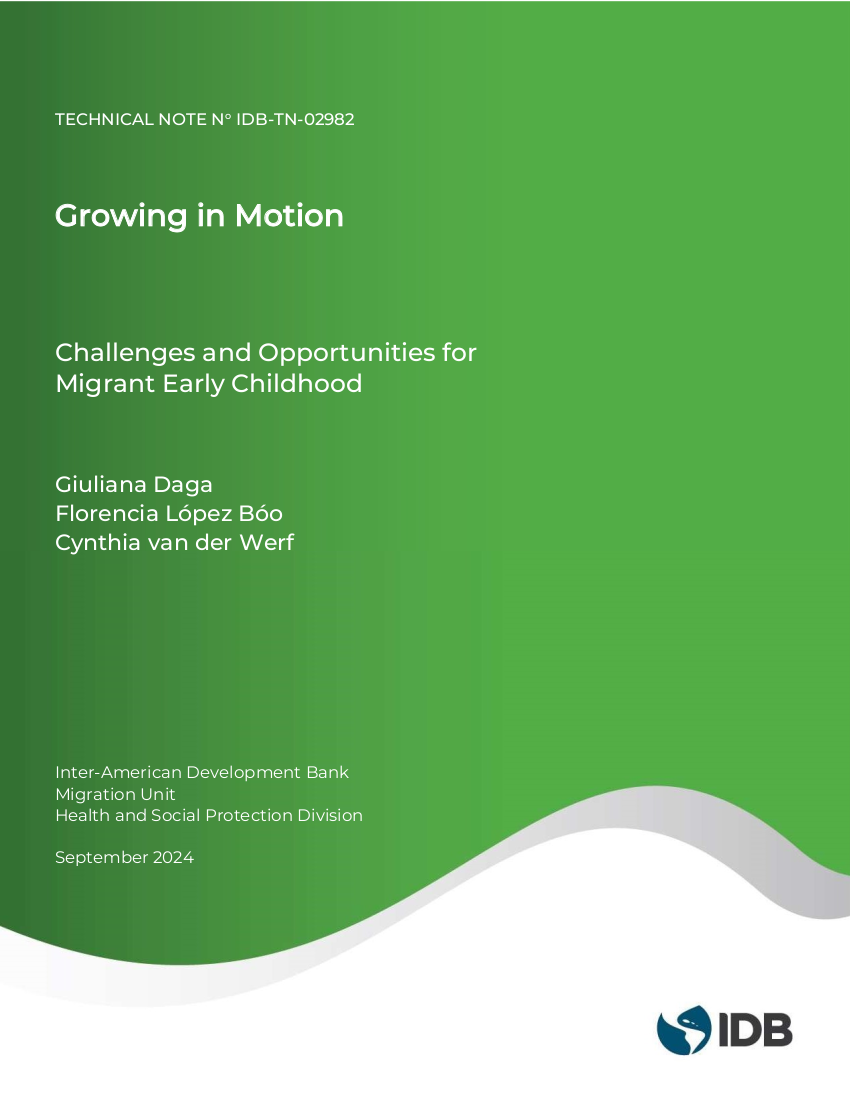Growing in motion: challenges and opportunities for migrant early childhood
Date issued
Sep 2024
Subject
Children;
Early Childhood Development;
Human Migration;
Child Health;
Migrant;
Childhood;
Population Aging;
Migration and Migrant;
Health;
Mental Health;
Cognitive Development;
Migration Management
JEL code
F22 - International Migration;
J13 - Fertility • Family Planning • Child Care • Children • Youth;
J18 - Public Policy;
I38 - Government Policy • Provision and Effects of Welfare Programs;
O15 - Human Resources • Human Development • Income Distribution • Migration
Category
Technical Notes
Over the past decade, migration flows in Latin America and the Caribbean (LAC) have grown significantly, characterized by complex patterns of origin, transit, destination, and return migration. This has deeply impacted families, particularly young children (aged 0 to 5). Parental migration has mixed effects on children left behind: while increased family income can provide benefits, the absence of parents may harm their emotional and cognitive development. For children who migrate, evidence indicates poorer cognitive and socio-emotional development, often due to a lack of stimulation and the stress associated with both the journey and the adjustment process. Children born in destination countries face a mix of opportunities and challenges, such as limited access to healthcare and education, and the stress of living under the threat of deportation.
This paper reviews global evidence on the relationship between migration and early childhood, with a specific focus on the LAC region. It highlights the challenges faced by these children and offers policy recommendations tailored to their varied needs. Among the most promising interventions discussed in the literature are family-centered approaches, center-based services, and mental health support for caregiversall aimed at improving the cognitive and socio-emotional development of migrant children.
This paper reviews global evidence on the relationship between migration and early childhood, with a specific focus on the LAC region. It highlights the challenges faced by these children and offers policy recommendations tailored to their varied needs. Among the most promising interventions discussed in the literature are family-centered approaches, center-based services, and mental health support for caregiversall aimed at improving the cognitive and socio-emotional development of migrant children.
NO



